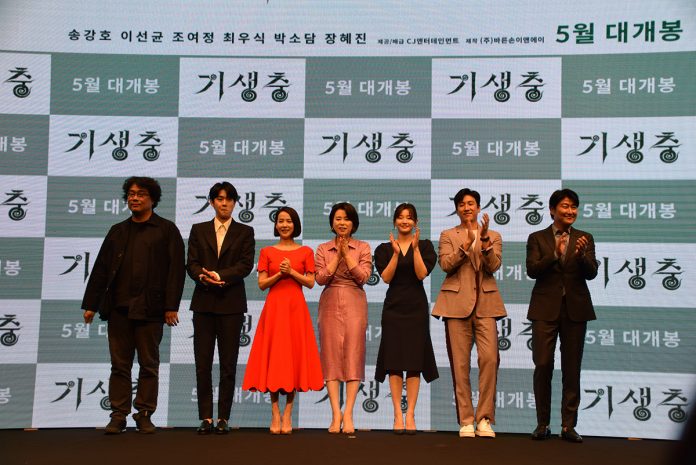
In light of the incoming 92nd Academy Awards on Feb. 9, Bong Joon-ho’s “Parasite” has caught attention as not just the only foreign nominee for Best Picture, but the first Korean nominee ever considered for the award. The film’s six Oscars nominations speak to its historic success, cementing Joon-ho’s work as a masterpiece.
The title of the movie is somewhat misleading. Labeled as a thriller by cinemas, “Parasite” appears simply to be about an infectious disease. But as the movie evolves, the name reveals itself to be but a metaphor.
“Parasite” follows the footsteps of two families, the Kims and the Parks, representing two opposite classes in every society. The Parks are so rich that they do not know how many rooms there are in their house; the Kims are so poor that they sit in their bathroom to catch Wi-Fi from a nearby café. Destiny somehow connects the two together, leading to the least expected events for both families.
In every scene, Joon-ho uses this striking parallel narrative to emphasize the social status among members of two families. Their discrepancies are delicately depicted through their encounters. Characters rarely talk about their wealth gap, but every line is a blast for viewers. My favorite line is Mrs. Kim’s comment on the Parks: “There are no good and rich people. They are good because they are rich.”
Just as two families’ lives are extremely different, "Parasite's" first and second halves take very different tones. The first half is what every viewer can expect of a satirical comedy. The Kims bring the playful element to the film with their ridiculously crafty plan and dark jokes. But it is just the set-up for the latter half. The tone changes completely as more secrets are revealed, leading to a bloody ending, reminding me of the Oscars-winning “American Beauty” by Sam Mendes.
The brilliancy of “Parasite” lies in the plot. The film’s storyline is so incredibly cohesive that all the details are connected with and complementary to each other. Even simple things like Mr. Park’s cup of coffee or the dim light bulb tell a story. This is the artistry that makes the film both overdramatic and logical at the same time.
“Parasite’s” sensational story is paired with an equally impressive cast. Lee Sun Kyung, Choi Woo-shik, and Kang Ho-song all make their roles memorable, but for me, the most stunning performance is by Park So-dam as Kim Ki-Jung. Her character is so mysterious that even by the end of the film, her intentions are ambiguous. Her acts are full of conflict of confusion: lighting a cigarette underwater, or smiling in life-threatening situations. Her intricacy and unpredictability reflect that of the entire film
Along with the cast, music in the film contributes to its success. Beautiful symphonies in the first half of the film highlight the harmony reflected in the characters and plot. But as the film turns darker, it ditches its light, romantic film score, growing darker and more dramatic.
Between its masterful story, narrative, cast, and music, “Parasite” is more than just a good movie. It has proven its stand in the film industry, winning the Golden Palm (highest award) in 2019 Cannes Film Festival. It will be no surprise if Joon-ho and his crew bring home some awards in the upcoming Oscars.
